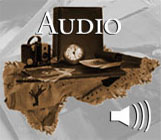14
S. Wertman: There is one member of the family who was not brought over, who was left there, who had children and they were getting married and they were. . . That was before the war. You know? before Hitler began taking over.It is very sad. I remember I was only, God?I do not know if I was a teenager. I was quite young. But I had that letter and I have my father's file. And I gave that letter to my sister and she had it translated.
And this, these begged . . . on my mother's side of the family, begged my father to send money to bring her over. He could not do it.
R. Ormerod: Yea.
S. Wertman: I . . . you know - terrible. They did not survive. We knew all about what was going on there. When the war started and my mother died in 1939. That was the year the war started. Right?
We know what was happening to the Jews, in Europe. It is not as if we did not know. And as you say, you feel you are in a safe haven here. I did not feel anti-Semitism when I was young, at all.
R. Ormerod: Ok.
S. Wertman: And I was not really aware of it much. We are all aware of the fact that the Jews were being . . . killed.
R. Ormerod: Yes
S. Wertman: Hitler . . .well Don's brother joined service, Don joined the service, Eddie joined, David was over in Europe. So, everybody did their thing.
15
Though the community prospered and grew in confidence through the 1930's, they were not immune to the events around them.16
The coming of World War II was devastating to the community of Kirkland Lake. The war years in Kirkland Lake began with a bitter labour confrontation that coincided with international efforts to defeat Nazism that would depress the local gold mining industry.A bitter labour dispute between the local mines and their workers over union recognition rights left the town divided and many left to seek work else where in the country.
The Canadian government and her allies were at war with Nazi Germany and they had signed the Lend Lease treaty with the U.S. government. The treaty allowed the Allied Governments to fight World War II with materials lent by the U.S. government rather force them purchase material to conduct the war. The result was that gold was not critical to conduct the war effort. The Canadian government directed economic resources to more essential industrials like base -metal mining in Sudbury, Ontario and the munitions factories of Southern Ontario.
Kirkland Lake's mining activity began to slow and one third of the population left for either military service, work in other mining camps, or the war industries of Southern Ontario.
Although the population of the community did recover somewhat after World War II, Kirkland Lake, like many of the gold camps across Canada never recovered fully from the economic turmoil of the Second World War.
18
The strike during the 40's at the beginning of the war really curtailed Kirkland Lake and also with the war many people left to get munitions jobs in Toronto.19
As the population of Kirkland lake began to decline from a general slowdown in the gold mining industry, the local Jewish population suffered from emigration which left it at only a quarter of its 1937 size by 1969.20
The decline was due to a number of reasons, principally economic. The second and third generations of the community found opportunity elsewhere, while at the same time their parents followed their children to other communities after retiring or closing their shops. Today the Jewish community is a shadow of itself with only a handful of individuals remaining.22
That brings up another thing too, because with Jewish families when the kids got old enough to go to university or when they were even, before university, in high school and were dating, the parents who wished to have their children marry other Jewish children - they would consider then the fact that they would move. Frequently, they sent their children first and then they would follow . . .24
A lot of people moved to the city because their children were going to university. In North Bay there were Men's and Ladies wear stores. There were just, things just started closing down slowly here.We had Sam Davis Men's Wear,
We had Joe Scott was here at that time.
Jeff Scott was the Dentist. He was the son of Ruby Scott.
Who else was there? John Hill moved to Toronto. They had children to look after.
The Brooks moved to North Bay.
The Gruvichs moved to North Bay.
The Jacks closed up their fur shop and moved to Toronto as their kids were there.
I think that these older people who moved away wanted to see their grandchildren, wanted to be with their children. My in-laws moved back up here and I just, Don and I came back and we just stayed here, because we both had a very busy life here.
26
A lot of people did it, I mean there were lot of people but what happened in a lot of cases too was that the kids went down so they kind of made things a little easier they settled down there and then they came down and there were friends and family.We always thought that we would settle in North Bay and I would not give 2 cents for North Bay now but I could not think of one reason why I want to move to . . . well maybe one reason, because it was closer to civilization.
